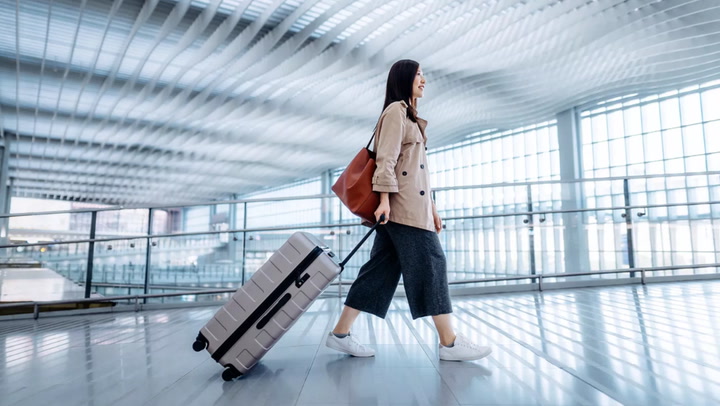Summary
Travel is a gift. It makes us more connected to the world, can inspire us in ways we never imagined, and helps us bond with loved ones along the way. It can also leave us rather frazzled with anxiety.
Travel anxiety is nothing to be ashamed of, and if you have it, you’re far from alone. According to WebMD, some 18% of the U.S. population has an anxiety disorder.
“Travel can be really stress-inducing because so many things are outside of your control,” Dr. Nina Vasan, chief medical advisor at Zeera (formerly known as Real) and professor at Stanford, shared. “From weather and mechanical delays to traffic and lost bags, there are a lot of stressors that you can’t necessarily plan for or solve. Things that happen while you’re traveling can also have huge impacts on your day or life.”
There are, however, a few tools you can add to your mental health arsenal to help. Here are seven travel anxiety tips to help ease stress on your next trip.
Pack an item that brings you joy.
If you’re prone to travel anxiety, Vasan suggests packing one item that makes you feel happier, no matter what that is.
“Think of a few things to bring with you to make it a joyful or calming experience. This is different for everyone,” Vasan shared. “For example, think of things you enjoy: a new movie, a new TV show you’ve wanted to watch, a podcast, or something to entertain you that will make travel more fun.” For a dedicated yogi, it might be a travel yoga mat that allows them to practice wherever they want.
Channel nervous energy.
Feeling out of control? Find something to distract you—specifically, something to distract your hands.
“Find something you can do with your hands to channel nervous energy, like knitting, coloring, needlepoint, writing letters or postcards, and journaling. This allows you to be creative and use the time you’re spending in transit in a way that is fulfilling and can make it feel less stressful,” Vasan said.
Plan your meals.
Vasan said you shouldn’t leave anything up to chance, including your meals.
“Food can be a stressor for a variety of reasons. Maybe you’re hungry in transit. Or maybe you don’t see any food options you like,” Vasan said. “Think ahead about what you want to be eating and plan accordingly. Maybe that means packing food for the trip. Or if you’re planning to eat out, think ahead to what you might find satisfying.”
Give yourself extra time.
The last thing you want to do is pile on more stress by being late. So, Vasan said, it’s good to pad in extra time while in transit.
“The travel experience has become much more stressful lately, especially airline travel. Give yourself extra time to plan ahead for any delays or things that might unexpectedly happen. Having the extra buffer time will make your travel feel much less stressful,” Vasan said. If you end up with too much extra time, find something to do—like catching up with a friend or loved one or walking around the train terminal or airport.
Try calming breathing techniques.
What is one thing you can do anywhere, at any time? Take a deep breath.
“Deep breathing, mindfulness, and meditation are absolutely fantastic,” Vasan said. “I like diaphragmatic breathing to ease anxiety and stress. It is a deeper style of breathing, and I think that physical component can be really useful in releasing stress.”
Move your body.
Another way to get your body prepared for stress-free travel is to move a little.
“Physical movement is incredibly helpful in reducing stress. Adding just five minutes here and there can be really helpful,” Vasan shared. “Maybe it is taking the stairs instead of the elevator or power walking around the airport terminal during your layover. Movements can be a game-changer.”
Have a backup plan.
One more way to reduce your chances of running into any travel stress is to always have a backup plan so you’re never left out in the cold.
“Contingency planning ahead of time can be helpful when it comes to work and family responsibilities,” Vasan added. “Before you start traveling, think ahead—if your return flight home gets canceled, what are you going to do? Having a ‘crisis plan’ in place can decrease anxiety because you already know what you’re going to do.”
And don’t be afraid to ask for professional help.
Still feeling overwhelmed? Ask for help.
“If it is at the level where your stress is prohibiting you from traveling, or you notice the stress so much that it is getting in the way of you having a good experience while traveling, I think that means it is hitting the level where a professional can help.” So go ahead and make an appointment with your therapist (or check out the online services at Zeera) to get over any hurdles so you can focus on having the best travel experience of your life instead.





